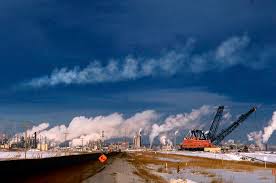The oil industry is always a booming industry, and the reason for this is because oil is always in constant demand.
There is always a need for a great output of oil on a daily basis, and this implies that workers need to be on their toes continually so that they can meet up with the tough demands.
Of course, oil workers have good salaries to show for it, and this is what makes them leave comfortable lives.
The money which oil workers are paid, is sufficient for them to solve all of their family issues, without having to break a sweat.
However, one of the major downsides which comes with this job is, the oil workers face great amounts of stress, and this often leads to substance abuse and addiction in the long run.

Not all oil workers know how to relieve themselves of stress, and this is one of the reasons why a good number of them have issues abstaining from drug, alcohol and other forms of addiction.
The reason why they are addicted is because, they believe taking these substances helps them to cope effectively with stress.
With time, they discover they need greater amounts of these substances, and this increases their daily intake.
One of the most effective ways for an oil worker to relieve stress, is effective rest, and most of them deny themselves of this. They want to work for longer hours so they can earn more, and this takes a toll on their physical and mental health.
Oil workers need to understand that there is a good amount of rest which is needed for their body, and if they deny their bodies of this, there is a likely chance they will break down soon enough.
Another way oil workers can relieve themselves of stress, is to spend ample time with their loved ones; their family and friends.
This is important because, being in solitary is disadvantageous to their health, and they need the best moral and emotional support which they can get to help them move on.
If an oil worker understands that money is not everything, and they can spare themselves some hours to set other aspects of their lives straight, they would be good to go.





